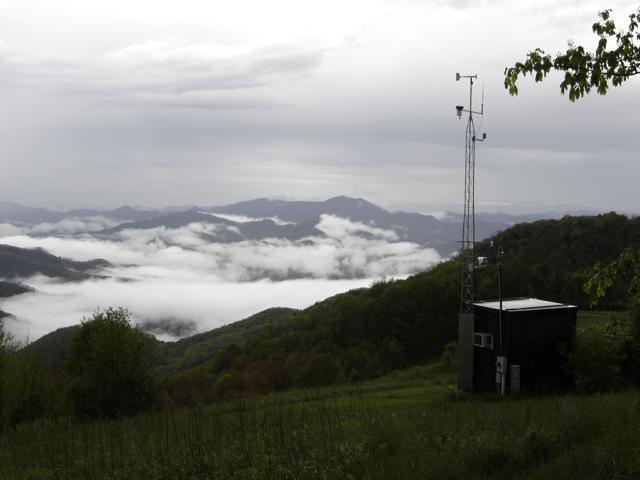Warm weather means gardens growing, breezes blowing … and daily email alerts from the N.C. Division of Air Quality (see box, “Airin’ Out”). Worse yet, poor air-quality days — usually associated more with summer — are now occurring earlier in the year, according to the experts assembled at a March 30 press conference at the Land-of-Sky Regional Council.
Kicking off this year’s ozone season, the event featured presentations by state and local agencies concerning local air-quality trends and programs to help address them.
Found 10 to 30 miles above the Earth's surface, the ozone layer protects us from the sun's harmful ultraviolet rays. But ground-level ozone — created when volatile organic compounds interact with pollutants such as nitrous oxides in the presence of sunlight — degrades air quality. Cars, power plants, industrial boilers, refineries, chemical plants and other sources emit these pollutants.
Invisible and odorless, ozone irritates the respiratory system, aggravating chronic lung conditions such as asthma, emphysema and bronchitis. Long-term exposure can permanently damage respiratory tissues — particularly worrisome in children, who take in 50 percent more air per pound of body weight than adults, notes Ashley Featherstone of the WNC Regional Air Quality Agency.
North Carolina, says Featherstone, ranks fifth among the 50 states in terms of unhealthy ozone levels; the local air agency urges residents to monitor ozone levels in their area and minimize their outdoor exposure on higher-ozone days, even if they don’t experience any symptoms.
The March 30 event included an update on the U.S. Environmental Protection Agency’s effort to tighten its standard for ground-level ozone from 75 parts per billion to somewhere between 60 and 70 ppb. Together with a stricter replacement for the so-called Clean Air Interstate Rule, the new standard — which air advocates expect will be released later this summer — will be good news for anyone who breathes. Companies such as Blue Ridge Paper in Canton, however, will be forced to upgrade their emissions controls at considerable cost in the service of cleaner air, reported Paul Muller of the state Division of Air Quality.
But that’s only one piece of a complex puzzle. Since 2005, when Progress Energy added scrubbers to the stacks of its coal-fired power plant in Skyland, motor vehicles have become the Asheville area’s No. 1 air-pollution source, local data show. Information Specialist Keith Bamberger of the Division of Air Quality outlined a state rule that prohibits trucks from idling for more than five minutes in an hour. (It’s a complaint-based system: Report apparent violations at http://bit.ly/hkgdoq).
Another state program seeks residents’ cooperation. Parents dropping off and picking up their kids at school now pass signs urging them to shut off their engines while they wait; meanwhile, school buses aren’t allowed to idle for more than five minutes before students board.
Also at the March 30 event, Tim Owen of the National Climatic Data Center in Asheville reviewed the basics of climate change and what communities can do to address it. His organization has plans (hinging on a budget request to Congress) to unite its now widely dispersed research-and-delivery functions under a proposed National Climate Service, which would offer forecasting and other functions analogous to what the National Weather Service provides.
“Our region is growing,” said Bill Eaker, who’s coordinating Land of Sky’s regional Clean Air Campaign. “We must take action to reduce our emissions. A lot of good work is under way, but much more needs to be done — and we need every citizen and organization doing their part.”
— Send your local environmental news to Susan Andrew (251-1333, ext. 153, or sandrew@mountainx.com).



Before you comment
The comments section is here to provide a platform for civil dialogue on the issues we face together as a local community. Xpress is committed to offering this platform for all voices, but when the tone of the discussion gets nasty or strays off topic, we believe many people choose not to participate. Xpress editors are determined to moderate comments to ensure a constructive interchange is maintained. All comments judged not to be in keeping with the spirit of civil discourse will be removed and repeat violators will be banned. See here for our terms of service. Thank you for being part of this effort to promote respectful discussion.